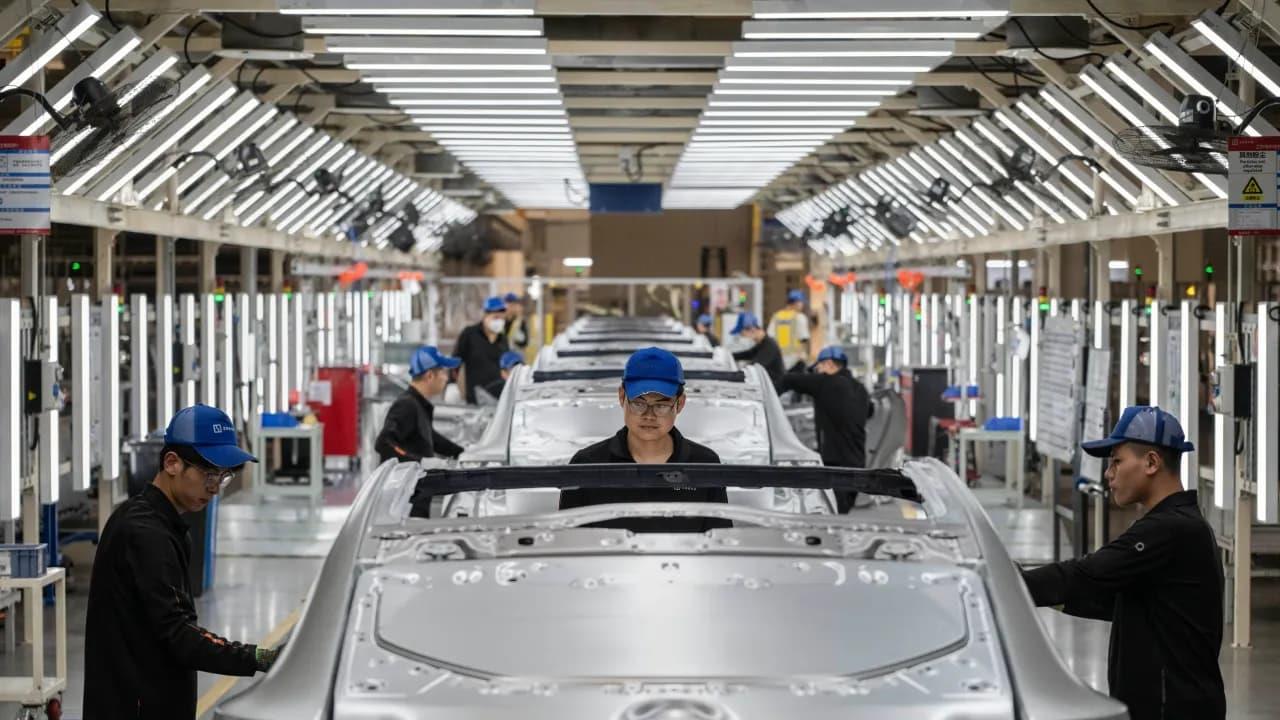Tata Motors, M&M, Maruti On Watchlist: Budget Evs May Stay Affordable, But Luxury Evs Could Get Costlier Under New GST Plans
The Indian government's proposed changes to the Goods and Services Tax (GST) framework could reshape India's electric vehicle (EV) market, according to SEBI-registered analyst Pradeep Carpenter.
Mass-market EVs such as Tata Nexon EV and MG ZS EV will continue to attract a 5% GST, ensuring affordability for middle-class buyers. However, luxury EVs, including models from Tesla, BMW, Mercedes, and BYD, may face a sharp increase in GST to 18 - 40%, significantly raising their prices, Carpenter noted.
Chinese carmaker BYD is expanding its presence in India and recently announced that it has delivered 10,000 cars in the country. According to reports, Tesla has received orders for just over 600 cars since launching sales in India in mid-July, short of internal expectations. It plans to ship between 350 and 500 cars to India this year.
Boost For EV Ecosystem?
However, the government is considering lowering GST on swappable batteries used in scooters, e-rickshaws, and fleet operations, providing relief to gig-economy operators, Carpenter noted. Hybrids and small petrol/diesel cars may see a GST cut from 28% to 18%, narrowing the price gap with EVs.
The rationale behind the proposal is to increase tax revenues from wealthy consumers, support broader EV adoption by keeping mass-market models affordable, encourage the development of a battery-swapping ecosystem, and promote cleaner alternatives like hybrids over larger SUVs, the analyst said.
For consumers, this means stable prices for budget EVs, costlier luxury EVs, and cheaper hybrids. For automakers, Tata Motors and Mahindra could face headwinds, while Maruti, Toyota, and Honda may gain from rising hybrid demand.
Stock markets have reacted cautiously, fearing slower EV adoption and weaker prospects for luxury EVs. The Nifty EV & New Age Automotive Index has given 5.3% returns over the last three months.
India's EV industry is witnessing a significant boom with charging infrastructure growing and automakers launching new vehicle models. Automakers sold 108,751 electric vehicles between January and August this year, up from 63,583 units a year earlier, marking a 71% increase.
For updates and corrections, email newsroom[at]stocktwits[dot]com.
Legal Disclaimer:
MENAFN provides the
information “as is” without warranty of any kind. We do not accept
any responsibility or liability for the accuracy, content, images,
videos, licenses, completeness, legality, or reliability of the information
contained in this article. If you have any complaints or copyright
issues related to this article, kindly contact the provider above.
Most popular stories
Market Research

- What Is The Growth Rate Of The Europe Baby Food And Infant Formula Market In 2025?
- UK Digital Health Market To Reach USD 37.6 Billion By 2033
- Spycloud Launches Consumer Idlink Product To Empower Financial Institutions To Combat Fraud With Holistic Identity Intelligence
- Cryptogames Introduces Platform Enhancements Including Affiliate Program Changes
- What Does The Europe Cryptocurrency Market Report Reveal For 2025?
- Excellion Finance Launches MAX Yield: A Multi-Chain, Actively Managed Defi Strategy






















Comments
No comment